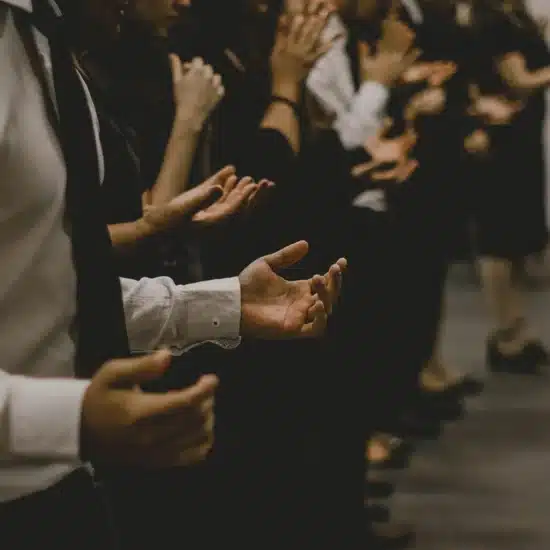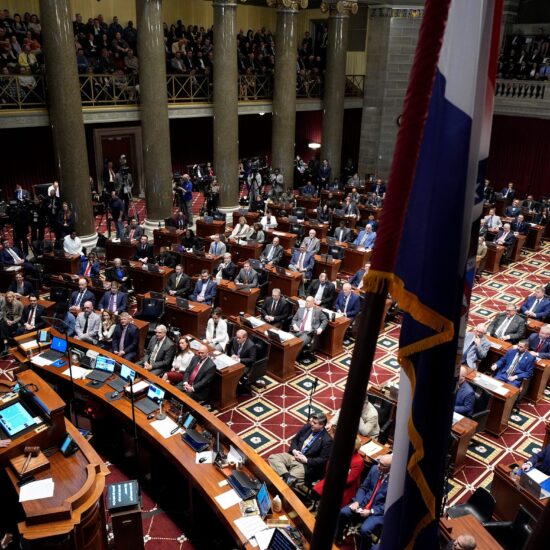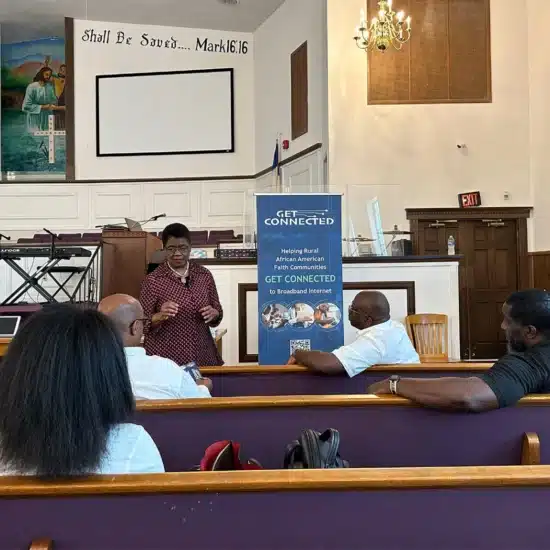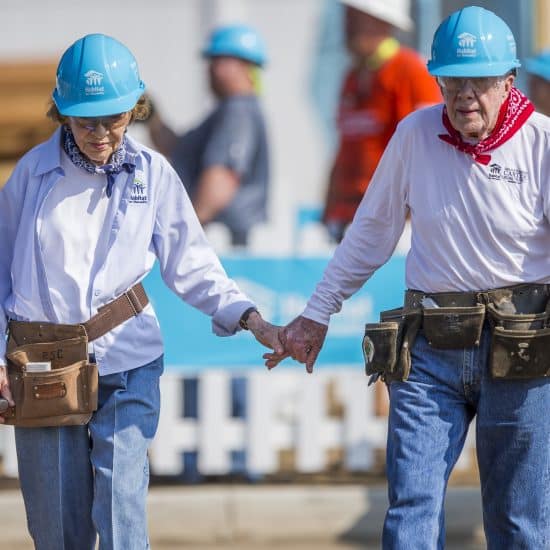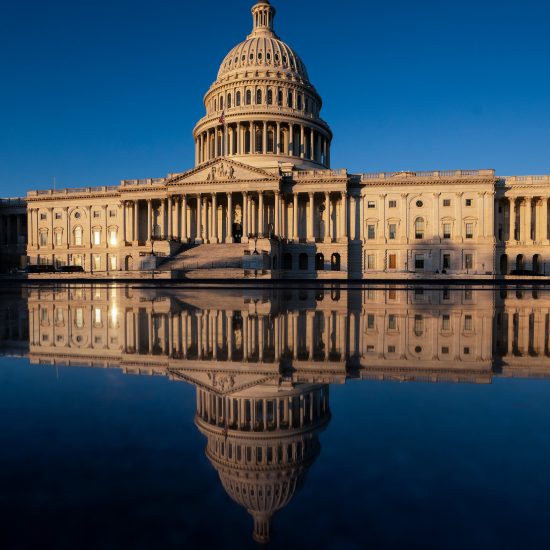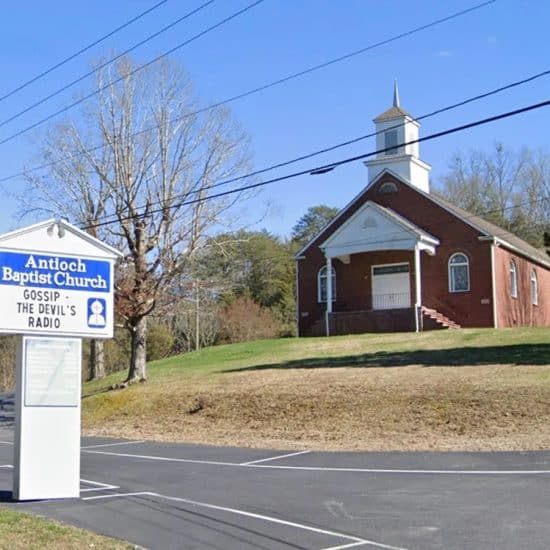African-American Baptist leaders are working together to counter attempts by outsiders to use gay marriage as a wedge issue to divide black voters, a Baptist minister and NAACP leader said in a radio interview Aug. 11.
Amos Brown, pastor of Third Baptist Church in San Francisco and president of the city’s local NAACP branch, said on Welton Gaddy’s State of Belief radio show that heads of the National Baptist Convention USA, Inc.; National Baptist Convention of America; Progressive National Baptist Convention and Lott Carey Foreign Missionary Convention are all telling their constituencies: “We as black Baptists are not single-issue persons, and we see more important things than getting stuck on this matter of whether or not there should be same-sex marriages.”
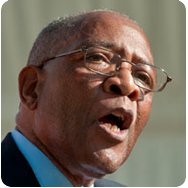
Amos Brown
|
Brown said black church leaders “are working to enlighten the people” about a confidential 2008-2009 memo from the National Organization for Marriage recently made public as evidence in a lawsuit in Maine.
The memo to NOM’s board of directors described a project designed to “drive a wedge between gays and blacks — two key Democratic constituencies.” The strategy was to “find, equip, energize and connect African-American spokespeople for marriage, develop a media campaign around their objections to gay marriage as a civil right; provoke the gay marriage base into responding by denouncing these spokesmen and women as bigots….”
“We contend that this is a racist ploy,” Brown said. “It is divisive, but it was birthed, it was created by, white evangelicals who have shown themselves to be duplicitous and contradictory in their stances.”
Early in the primary, Brown said, many conservative white evangelicals were adamantly opposed to Mitt Romney because he is a Mormon. As soon as he became the presumptive nominee, “they changed their tune, jumped on the bandwagon, jumped in bed with him.”
Brown said that illustrates that those evangelicals’ positions “have not been based so much on questions of morality, of religion, but it’s a matter of power, politics and money that they are creating these kinds of alliances.”
Brown charged the strategy was behind the formation of a national campaign in May calling on African Americans to withdraw their support from President Obama because of his stance in favor of gay marriage.
William Owens, the founder and head of the Coalition of African-American Pastors, claims to be a former Obama supporter and veteran of the Civil Rights Movement. As he gained visibility warning in major media that the president risks losing his African-American base, however, questions arose about the group’s apparent ties with white conservative groups.
Brown said he doubts Owens’ claim about being involved in the Civil Rights Movement and marching with Martin Luther King.
“I was a part of that movement,” Brown said. “Dr. King taught me at Morehouse, and I know pretty much who was in the vanguard of the movement. Reverend William Owens was no leader in the Civil Rights Movement, and yet this organization, the National Organization for Marriage, has anointed him through misrepresenting who he is for political gain to divide the black community.”
Brown also challenged Owens’ claim that he has 3,000 ministers behind him. “That is a front,” he said. “It’s fraudulent, and it’s not authentic. I hope black people will wake up, and their allies too, and not be duped by this kind of chicanery and political grandstanding that is now going on.”
“All of this is happening at the behest of white evangelical fundamentalists who have brought in such persons as Harry Jackson there in Maryland, Tony Evans down in Dallas, Texas, and others who don’t understand how they are being used, how they are being duped to make sure that Mr. Barack Obama is a one-term president,” Brown said. “This is sinister, it’s evil and it is wrong.”
Brown said there is some sentiment in the black community that the president is taking their votes for granted.
“This has been the considered judgment of many in the community, that they, blacks, don’t have any place to go,” he said. “They do have some place to go. Some of them can go and just sit the election out. I’m not saying that this is going to happen, but I’m saying that the challenge is for the Obama campaign to reenergize its base and to let this black community know that this president has stood for issues that impact the quality of life of black people.”
Brown, a member of the NAACP board that passed a resolution in May in support of gay marriage, said it would have been “very much apropos” for the president to have attended the recent NAACP national convention instead of sending Vice President Joe Biden in order “to stand with the organization who stood with him.”
“We haven’t given up on the president, but what we’re saying is basically this base of African Americans needs to be shored up,” he said. Brown said one key to connecting to those voters is connecting with the black church.
“Unfortunately the president has not made any appearances at a major black denominational body,” he said. “If he really wants to connect with this black community, the black church, the black faith community is the base.”
Brown said African-American church leaders are working to re-mobilize Obama’s voter base from the 2008 election with things like a voter-registration drive later this month. He said the unified message from church leaders is to say to the people: “What you believe in your church about marriage, that’s your personal prerogative as a U.S. citizen. You have freedom of religion and freedom from religion, but do not be duped by this singular issue that’s a wedge issue to divide the community.”

